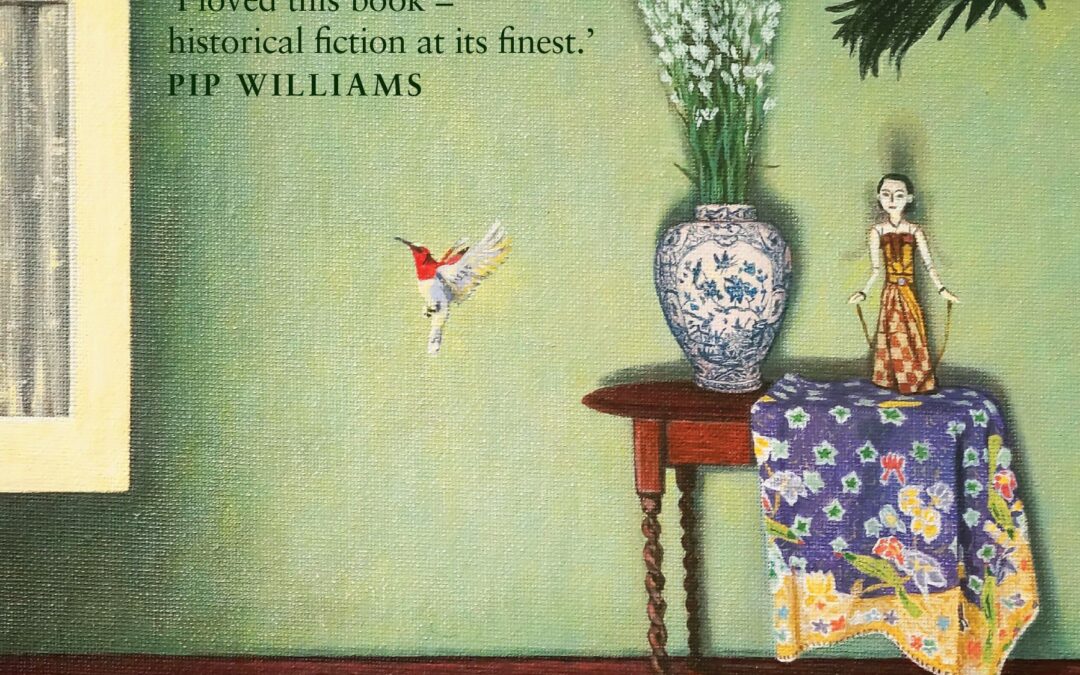As with all of Mirandi Riwoe’s writing, her latest novel Sunbirds (UQP 2023) immerses the reader in a sensory, cultural experience full of the tastes, sights, sounds and emotions of historical Indonesian / Chinese life. Sunbirds includes Dutch heritage and again examines the colonial experience and attitudes of the time.
Set during World War Two, the novel follows the life of the van Hoorn family, shortly before the Japanese invasion of Java. Anna van Hoorn is of marriageable age and attracted to Mattijs, a Dutch pilot. She hopes to make a good marriage and continue living an affluent lifestyle. Her brother Willem also serves as a pilot, and along with their father and other locals, the Dutch become more and more disquieted by events on the front.
The family’s longtime servant, Diah, has dreams of her own – to one day own and operate a small pension or accommodation / restaurant. The van Hoorne family has always treated her well, but her brother Sigit is less enamoured of their generosity and more inclined to the freedom fighters who demand the Dutch release the chains they hold over the Javanese and return the land to the original owners.
Set amongst a country of beauty and contrasts, and amidst a time of great turmoil, Sunbirds follows the fortunes of the leading families and the struggles of the locals. Romance is in the air but the fate of those involved is not always clear.
The opening prologue is an intense rendering of some of the Dutch escaping the island in planes, only to be shot down by Japanese fighters. Just who is escaping, and why, is unclear. The book’s final scene is a poignant and moving portrait of a time many years later, when the fate of some of the major characters is surprisingly revealed.
Riwoe has a unique talent for reimagining colonial pasts from the perspectives of the original inhabitants who are often or inevitably the ‘losers’, rather than the ‘winners’ who usually end up proscribing events and deciding what is the truth of history. Her ability to shift perspective and see historical events through the eyes of those without a voice is an unprecedented and magical touch that allows the reader to explore familiar tales in wholly unexpected and unfamiliar ways.
Her research is meticulous yet sits lightly on the page. The reader never feels lectured or inundated with information; rather the cultural details and ways of life are threaded imperceptibly and naturally throughout the story.
The loyalties and choices demanded by war, the betrayals, unfaithfulness and deceit prompted by war’s challenges, make for intriguing and beguiling reading. Riwoe’s writing is lyrical, descriptive, beautiful and immersive. Her stories are eye-opening, thought-provoking and always challenge the dominant narrative. Her use of native language and her depictions of the fruits, food, dances, music, smells, food and cultural recreation transport the reader very vividly to the scenes described. Moving, heart-breaking, truthful, imaginative, devastating and brilliantly observed, Sunbirds will stay with you long after the last page.

